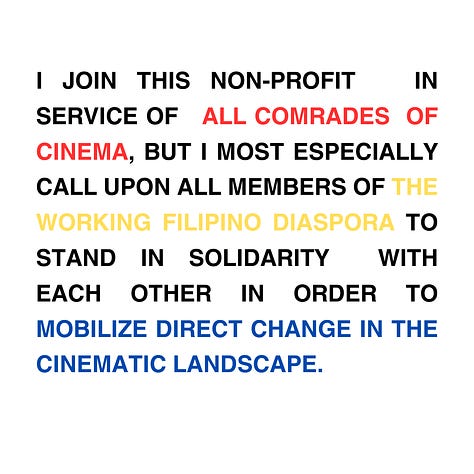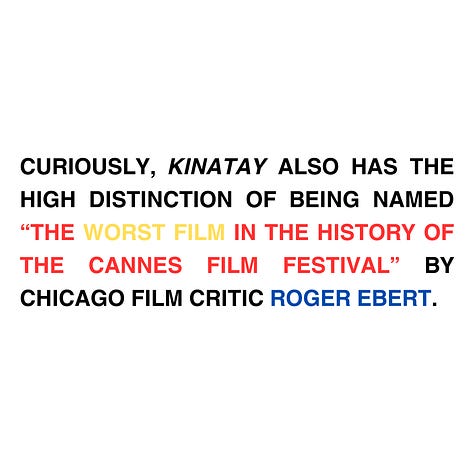The one and only Filipino director to win Best Director at Cannes
Brillante Mendoza made history in 2009 when he became the first Filipino filmmaker to be awarded Best Director (Prix de la Mise en Scene) at the Cannes Film Festival for Kinatay, a harrowing portrait of drug violence in contemporary Manila. With the win, Mendoza ascended to the ranks of Robert Bresson, Wong Kar-Wai, David Lynch, Werner Herzog, the Coppolas, the list continues on.
Curiously, Kinatay also has the high distinction of being named “the worst film in the history of the Cannes Film Festival” by Chicago film critic Roger Ebert, arguing that the grisly brutality depicted on screen seemed tasteless. It would be perhaps more fitting that Mendoza be mentioned in the same breath as Lars von Trier, Vincent Gallo, and Gaspar Noé, filmmakers that have built their careers thanks to their provocations in pushing the boundaries of good taste.
In many ways, I’m not surprised that the film got such mixed reviews. The unflinching and grounded violence makes for an undeniably excruciating watch, no matter what your own personal taste may be. However, I wonder why it’s the filmmakers who receive the lecture about good taste while actual drug violence and murder continue to rage on in the Philippines. Is it not the job of the filmmaker to be honest, sometimes painfully honest, about the state of this life and the people in it?
The mark of any great filmmaker is the courage to try new ideas, and new modes of seeing, even if they don’t land with everyone. Clearly, Kinatay is one example of a film that unapologetically ruffles the feathers of the old establishment while maintaining both its cultural and aesthetic significance.
There are ways to rail against the old establishment without having to release a controversial feature at Cannes. In fact, it can be as simple as withholding your labor. With the Writer’s Guild of America on strike (and with more guilds potentially following suit), I’ve witnessed a new generation of class-conscious creatives build community and share information and resources through social media. I wanted to do my own part in the cause, so I’m pleased to announce that I’m joining Fil-Am Creative as Director of Social Media.
I join this non-profit in service of all comrades of cinema, but I most especially call upon all members of the working Filipino diaspora to stand in solidarity with each other in order to mobilize direct change in the cinematic landscape. We can’t afford to be afraid of dismantling archaic, exploitative systems that hold Filipinos back from achieving our fullest potential. How lucky we are to be given the opportunity to realize a new path forward for Filipinos now and in the future. I look forward to being a more active presence in your lives as we celebrate and expand upon the collective cinematic imagination.



About the Author:
Emet is a second generation Filipino-American filmmaker based out of Southern California. A graduate of Loyola Marymount University’s School of Film & Television, Emet independently writes, directs, and produces in the short film, feature film, series, and commercial content spaces. Follow him on Instagram @emet_murillo






